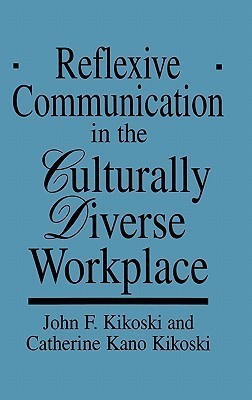Reflexive Communication in the Culturally Diverse Workplace(English, Hardcover, Kikoski John)
Quick Overview
Product Price Comparison
America's rapid and drastically changing demographics pose new challenges to society and particularly to the workplace. Taking as their theme that The only antidote to stereotyping and discrimination is to know each other as individuals, the authors look carefully at the direction in which America is heading demographically and where it will be in the 21st century. They discuss what the workplace will be like and how it will be affected by the characteristics of the people who will comprise it. The essence of the problem, say the authors, is communication-the face-to-face interaction between people of different ethnicities, races, and genders. They may be speaking to each other but are not being heard. Exploring the relationship between culture, communication and management, this new research in management introduces and applies the theory of 'Reflexive Communication' and the microskills necessary for using it in day-to-day work situations. The authors lay out the patterns of culture-specific values and behaviors of the major demographic groups in the workplace-white males, women, African-Americans, Hispanics, and Asian Americans. In each of these chapters the authors apply their theory and show step-by-step how individuals within each group can be accessed and trained by the precepts of 'Reflexive Communication'. The book concludes with a thoughtful examination of the future of diversity and diversity training in America and reasserts the need for people of differing cultures to find ways to work together, not only for their own personal benefit, but for the benefit of their workplaces and organizations.The authors lay out the patterns of culture-specific values and behaviors of the major demographic groups in the workplace-white males, women, African Americans, Hispanics, and Asian Americans. In each of these chapters the authors apply their theory and show step-by-step how individuals within each group can be accessed and trained according to the precepts of 'Reflexive Communication'. The book concludes with a thoughtful examination of the future of diversity training in America and reasserts the need for people of differing cultures to find ways to work together, not only for their own personal benefit, but for the benefit of their workplaces and organizations.


